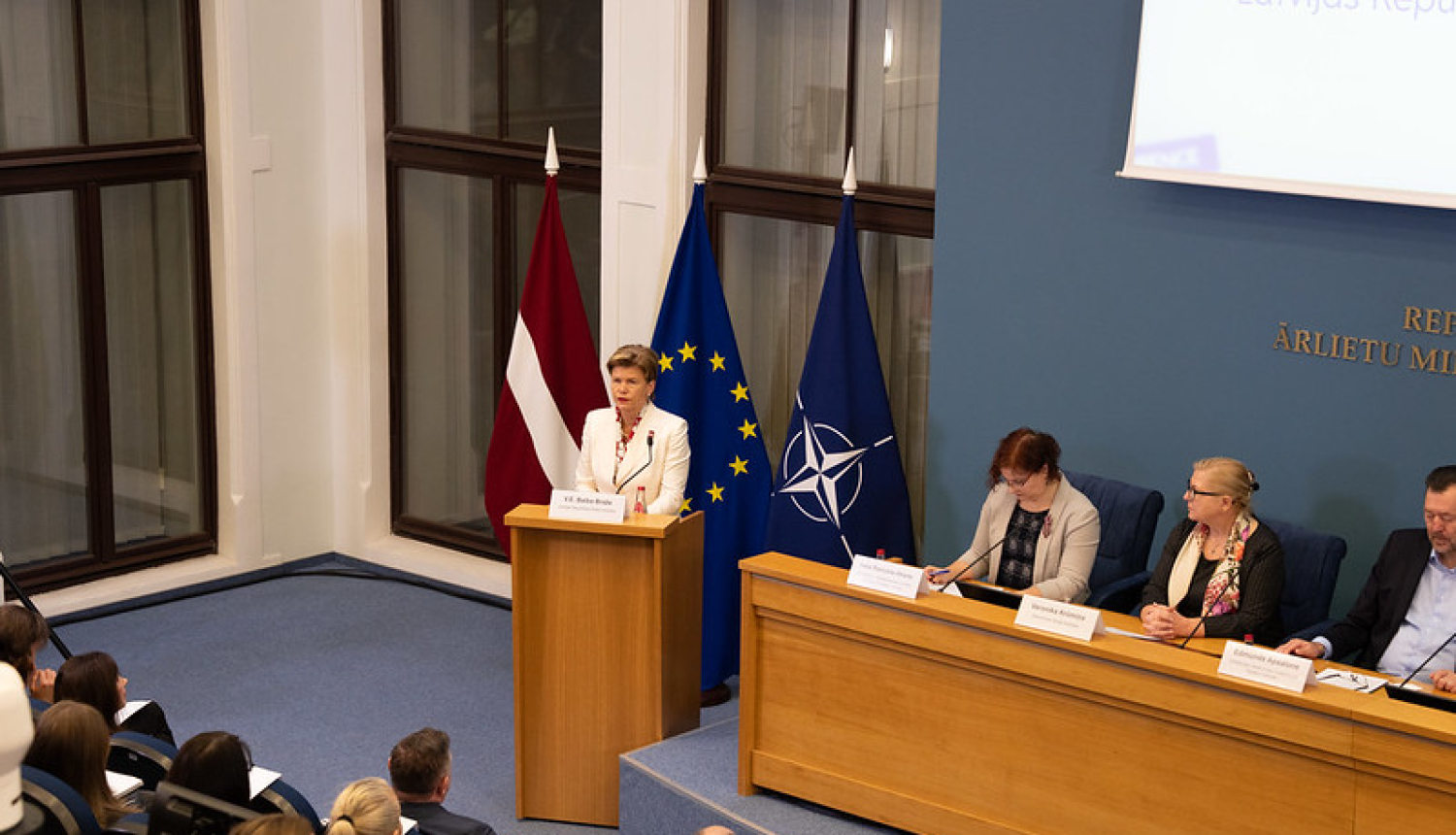On 14 November 2025 in Riga, the Ministry of Foreign Affairs hosted the 18th the conference, “The Latvian Language in the European Union – Access to Information and Clarity in Times of Uncertainty” addressing the topics of multilingualism in the European Union (EU). The conference was opened by the Minister of Foreign Affairs, Baiba Braže, and the Head of the European Commission Representation in Latvia Andris Kužnieks. The theme of this year’s conference was the accessibility of reliable information under the conditions when the world is dominated by an increasing uncertainty.
Foreign Minister Baiba Braže, in her address to the audience, called for highlighting the Latvian identity worldwide, both on an individual and national level.
“The foundation of our state is the Latvian language and culture. Latvia is the only country in the world where further development of the Latvian language is possible and where we can fully protect and nurture the Latvian language.
During its more than one hundred years of existence, the Latvian Foreign Service has always proudly protected our language. Even during the occupation period, our diplomats in exile continued their work to preserve the name of Latvia, the flag and the Latvian language for future generations.
More than 50 years of Soviet occupation and russification had a major negative impact on both the ethnic composition and the situation of the Latvian language in Latvia. However, this did not stifle the desire of Latvians to live in a free country and speak their own language. Since the restoration of independence, efforts have been invested in strengthening the Latvian language as one of the languages of the European Union, and to win legal proceedings in international courts in defence of the Latvian language so that no parallel societies are formed in Latvia.”
The Minister also expressed satisfaction that out of 193 Union Nation member states, the Latvian language ranks 35th in the world in digital usage.
She also noted that during her numerous foreign visits she has met with both Latvian communities and students who are learning Latvian – for instance, during recent working visits to Korea and Japan. It is inspiring to see the pride and enthusiasm shown by people in various parts of the world as they speak or learn to speak Latvian in order to maintain a connection with Latvia.
In his remarks to those present at the event, the Head of the European Commission Representation in Latvia, Andris Kužnieks, emphasized the role of language in the fight for the resilience of democracy against external and internal pressure. He called attention to the European Union’s “European Shield of Democracy” proposal unveiled this week, which contains new initiatives to combat disinformation.
The conference brought together over 100 participants from EU and Latvian institutions, professionals in the translation industry, the language technology sector, and other fields. The participants discussed how to ensure the accuracy of messages available to the public, with particular attention to the clarity of EU texts and the role of language specialists in ensuring this.
The participants also exchanged views about the impact of language technologies and artificial intelligence not only on the translation process, but also on the availability and quality of information. The impact of the global political situation on the way various messages are heard in the public space, and the ethical aspects of providing information were also discussed.
The event was chaired by the Head of the Latvian Language Unit 1 at the Department C.1 at the EU Directorate-General for Translation, Liena Muskare, while the sessions were chaired by the Head of the Latvian Language Unit 2 at the Department C.1 at the EU Directorate-General for Translation, Iveta Rancāne-Abarte, and the Head of the Terminology and Legal Translation Department, Deputy Director for Development at the State Language Centre, Arturs Krastiņš,
The Conference was organised by the Ministry of Foreign Affairs in association with the European Commission Directorate-General for Translation, the State Language Centre, and the Representation of the European Commission in Latvia.




